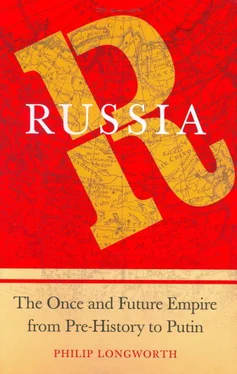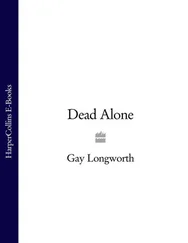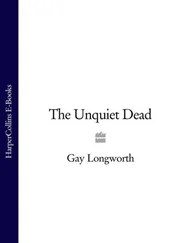26. On conditions for ordinary people, methods of coping and prevailing optimism in the 1930s, see S. Fitzpatrick, Everyday Stalinism (Oxford, 1999), p. 75 and passim; on support for the transformation in society, p. 224. For a critical view of Fitzpatrick’s new approach to the Stalinist years, see M. Malia, ‘Revolution fulfilled’, TLS, 15 June 2001, pp. 3-4.
27. Chamberlin, Russia’s Iron Age, p. 49.
28. Ibid., pp. 52-3.
29. R. Conquest, The Great Terror (London, 1968).
30. Quoted in M. Lewin, Russian Peasants and Soviet Power (London, 1968), p. 516.
31. See V. Zhiromskaia, ‘Chislennost’ naseleniia Rossii v I939g.: poisk istiny’, in Poliakov et al., eds., Naselenie Rossii v 1920-1950-e gody, pp. 27—47; Chamberlin, Russia’s Iron Age, pp. 364-6.
32. J. Erickson, Stalin’s War with Germany, vol. 1: The Road to Stalingrad (London, 1998), pp. 63-4.
33. See ibid., ch. 1.
34. On the Khalkin-Gol campaign see J. Erickson, The Soviet High Command (London, 1961), pp. 532-57.
35. Ibid., pp. 542-7.
36. The point is made by A. J. P. Taylor, The Origins of the Second World War (London, 1969), pp. 316-19.
37. Erickson, The Road to Stalingrad, ch. 2.
38. For good accounts of the early operations, see Erickson’s The Soviet High Command, chs. 17 and 18, and his The Road to Stalingrad, pp. 99—222.
39. Quoted in Erickson, The Road to Stalingrad, p. 5.
40. Ibid., p. 235.
41. C. Andrew and V. Mitrokhin, The Mitrokhin Archive: The KGB in Europe and the West (London, 2000), p. 135.
42. Ibid., p. 433.
43. J. Erickson, Stalin’s War with Germany, vol. 2: The Road to Berlin (New Haven, 1999), pp. 45-6.
44. Ibid., ch. 3, esp. p. 135.
45. Longworth, The Cossacks, pp. 329-39.
13: THE HIGH TIDE OF SOVIET IMPERIALISM
1. For details of the operation see J. Erickson, The Road to Berlin, pp. 139-42, and passim for subsequent operations.
2. Quoted in J. Haslam, Vices of Integrity (London, 1999), p. 107.
3. J. Mackintosh, Strategy and Tactics of Soviet Foreign Policy (London, 1962), p. 10.
4. M. Djilas, Conversations with Stalin (Harmondsworth, 1969), p. 90.
5. O. Gordievsky claims that the Germans lost 9 million men in the fighting on all fronts, whereas the Soviet Union lost between 20 and 30 million on its western front alone — see his letter in the TLS, 4 May 2001.
6. Primo Levi, The Voice of Memory: Interviews 1961-1087, ed. M. Belpoliti, trans. R. Gordon (New York, 2001), p. 52.
7. For a concise account of the circumstances at the conclusion of the war and events up to the onset of the Cold War, see P. Longworth, The Making of Eastern Europe (2nd edn, London, 1997), pp. 69-82 and nn. 1-13, pp. 92-3.
8. O. Jaszi, ‘The economic crisis in the Danubian states’, Social Research (New York, New School of Social Research), 2 (1935), 98-116. The extract quoted is on p. 116.
9. See Longworth, The Making of Eastern Europe, pp. 80—81.
10. M. Perrie, The Image of Ivan the Terrible in Russian Folklore (Cambridge, 1987), p. 117.
11. Personal communication from the daughter.
12. R. Slusser and J. Triska, Calendar of Soviet Treaties (Stanford, 1959), pp. 304, 323. The work gives an impression of intense diplomatic activity round the world in the post-war years.
13. Mackintosh, Strategy and Tactics of Soviet Foreign Policy, pp. 130-32.
14. Ibid., pp. 205ff.
15. Pravda, 28 January 1959.
16. Service, Twentieth-Century Russia, p. 351.
17. See Bugai, N., ‘Pravda o deportatsii chechenskogoï ingushetskogo narodor’ [The Truth about the Deportation of the Chechen and Ingush Peoples], Voprosy istorii, 7 (1990), pp. 32-44.
18. Kappeler, Russland als Vielvölkerreich, pp. 310-12.
19. V. Kabuzan, Russkie v mire: dinamika, chislennost’ i rasselenniia 1710-1080 (St Petersburg, 1996), p. 271.
20. Grossman, ‘The industrialization of Russia’.
21. Olcott, The Kazakhs, pp. 238-40.
22. Armstrong, Russian Settlement in the North, p. 170.
23. Kabuzan, Russkie v mire, p. 274.
24. Kappeler, Russland als Vielvölkerreich, p. 313.
25. Andrew and Mitrokhin, The Mitrokhin Archive, pp. 651-5.
26. Longworth, The Making of Eastern Europe, pp. 51—2 passim and n. 12, p. 66.
27. M. Sicker, The Strategy of Soviet Imperialism (New York, 1988), p. 13.
28. The standard source for this is M. Kaser, COMECON (London, 1967); see also his (ed.) The Economic History of Eastern Europe (3 vols., Oxford, 1986).
29. Service, Twentieth-Century Russia, p. 388.
30. Sicker, The Strategy of Soviet Imperialism, pp. 145-7.
31. Ibid., p. 69; Andrew and Mitrokhin, The Mitrokhin Archive, pp. 508-11.
32. Andrew and Mitrokhin, The Mitrokhin Archive, pp. 149—77, passim. For a Russian account of these activities based on archives preserved by the Association of Veterans of Russia’s Foreign Intelligence Service, see Ocherk istorii rossiiskoi vneshnei razvedki, vol. 6: 1945-1965 (Moscow, 2003).
33. A. Reid, The Shaman’s Coat: A Native History of Siberia (London, 2002), pp. 133 passim; 160-61.
14: AUTOPSY ON A DECEASED EMPIRE
1. See Tuminez, Russian Nationalism since 1836, p. 42. As she points out, this policy of ‘rooting’ (korenizatsiia) also encouraged nepotism, cronyism, corruption and the creation of virtual fiefdoms, but then nationalism has always been used as a means of accessing political power and economic advantage.
2. V. Shlapentokh, ‘A normal system? False and true explanations for the collapse of the USSR’, TLS, 15 December 2000, pp. 11-13. The author herself conducted several of the surveys referred to.
3. Boris Aristov to Moscow, 18 October 1978, quoted in Andrew and Mitrokhin, The Mitrokhin Archive, p. 666.
4. Described by a sociologist involved — T. Zaslavakaia, ‘Novosibirsk report’, Survey, 28, 1 (1984), 88-108.
5. I have described the processes of collapse before in the context of the Soviet Bloc states themselves — Longworth, The Making of Eastern Europe, ch. 1, especially pp. 11ff.
6. It was reported that Soviet scientists eventually concluded that a mirror system fitted to their missiles could divert missiles sent against them. In practice it was unnecessary for all Soviet missiles to get through: the prospect of only two or three of them succeeding in destroying as many large American cities would have constituted an effective deterrent (and the fear of one reaching its target might have been enough). Meanwhile the cost of the arms race, some scholars argue, contributed to the destabilization. For an interesting account of Soviet science and references to some useful literature on the subject, see Y. Rabkin and E. Mirskaia, ‘Science and scientists in the post-Soviet disunion’, Social Science Information, 32, 4 (1993), 553—79.
7. In retrospect this turned out to be the best opportunity to create a genuine democracy that was to be offered, but at that moment it was too radical even for Gorbachev, and the chance was missed — cf. Archie Brown’s lecture at the School of Slavonic Studies, London, 1 March 2004.
8. The author’s observation. He was in Moscow and Kiev at the time.
9. See Service, Twentieth-Century Russia, pp. 445—6.
Читать дальше





![Stephan Orth - Behind Putin's Curtain - Friendships and Misadventures Inside Russia [aka Couchsurfing in Russia]](/books/415210/stephan-orth-behind-putin-s-curtain-friendships-a-thumb.webp)





